I've had a million and one issues with Poetry recently.
I got it fully installed and working yesterday, but after a restart of my machine I'm back to having issues with it ;(
Is there anyway to have Poetry consistently recognised in my Terminal, even after reboot?
System Specs:
- Windows 10,
- Visual Studio Code,
- Bash - WSL Ubuntu CLI,
- Python 3.8.
Terminal:
me@PF2DCSXD:/mnt/c/Users/me/Documents/GitHub/workers-python/workers/data_simulator/src$ poetry run python3 cli.py
poetry: command not found
me@PF2DCSXD:/mnt/c/Users/me/Documents/GitHub/workers-python/workers/data_simulator/src$ curl -sSL https://raw.githubusercontent.com/python-poetry/poetry/master/get-poetry.py | python3
Retrieving Poetry metadata
This installer is deprecated. Poetry versions installed using this script will not be able to use 'self update' command to upgrade to 1.2.0a1 or later.
Latest version already installed.
me@PF2DCSXD:/mnt/c/Users/me/Documents/GitHub/workers-python/workers/data_simulator/src$ poetry run python3 cli.py
poetry: command not found
me@PF2DCSXD:/mnt/c/Users/me/Documents/GitHub/workers-python/workers/data_simulator/src$
Please let me know if there is anything else I can add to post to help further clarify.

